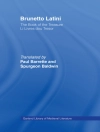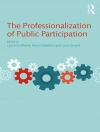In W. Lucas Collins’ esteemed translation of ‘Homer: The Iliad; The Odyssey, ‘ the timeless epics are rendered with clarity and eloquence, bridging the ancient world with modern sensibilities. Collins employs a lyrical yet accessible style, allowing contemporary readers to appreciate the depth of Homeric poetry without sacrificing its historical richness. The carefully crafted prose reflects the intricacies of war, honor, and the human experience, positioning these works within their literary context as foundational texts of Western canon and epic tradition. W. Lucas Collins was an influential scholar of Greek literature, whose academic pursuits and passion for classical texts shaped his approach to translation. His familiarity with the historical and cultural nuances of ancient Greece enabled him to create a translation that not only stays true to Homer’s original intent but also resonates with today’s audience. Collins aimed to evoke the emotional and dramatic qualities intrinsic to the stories, ensuring the characters’ passions and struggles feel relevant in any era. This translation is a must-read for both scholars and general readers alike. Collins’ insightful annotations and thoughtful interpretations enhance the reader’s understanding of these epic tales. Dive into the world of gods and heroes, and discover the nuances of human nature that continue to echo through time, making this edition essential for anyone wishing to engage with the foundational texts of Western literature.
About the author
W. Lucas Collins, esteemed for his scholarly contributions to classical studies, notably shines through his meticulous works on Homer’s epic poems, ‘The Iliad’ and ‘The Odyssey’. While the precise details of Collins’ personal life and academic chronology remain obscured by time, his enduring legacy rests on his role as a translator and interpreter of ancient Greek literature. Collins’ engagement with these texts reveals a deep appreciation for the nuanced craft of Homer, serving as a gateway for English-speaking readers to experience the vibrant tapestry of war, myth, and heroism that has shaped Western literary traditions. His translations are applauded for their attention to the rhythmic and thematic fidelity to the original works, thus encapsulating the oral tradition that underpins Homer’s narratives. Collins’ expositions transcend mere translation; he provides illuminating commentary and context that enrich readers’ understanding of these foundational epics. Furthermore, his analyses reflect a Victorian-era sensibility, balancing philological rigor with the poetic sensibilities of his time. While Collins may not be as widely known as some of his contemporaries, his contributions form an essential link in the preservation and interpretation of classical literature for both scholars and lay readers.












